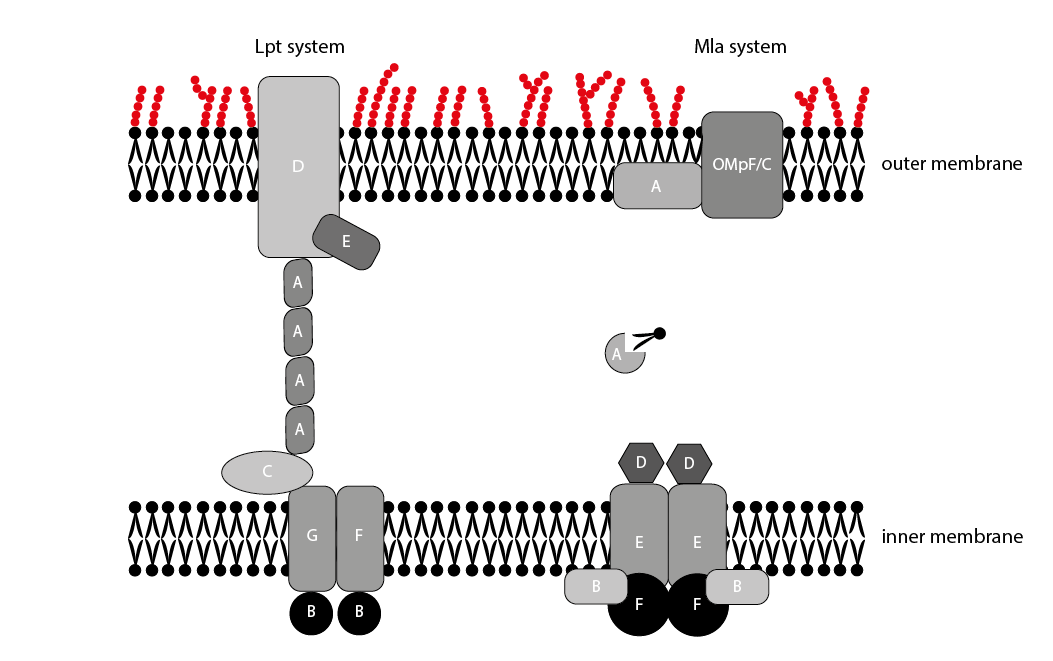Lipid transporters
The
cell interior of Gram-negative bacteria is protected by a double layer
of membranes. While the inner one is mainly composed of phospholipids
(PLs), the outer membrane is built as an asymmetric bilayer, where the
inner part consists mainly of PLs, while the outer membrane contains
lipopolysaccharides (LPS). This asymmetry plays an essential part in
drug resistance, as the membrane system works as a barrier against all
kinds of pharmaceutics (e.g. antibiotics). To maintain the composition
of these membranes, there are PL- and LPS-transport systems in
bacteria. The molecular principles that control these transport systems
are the subject of our investigations - currently we are working on the
Lpt- and the Mla system, which have come into focus as potential
antibiotic targets. Through native mass spectrometry, in particular
LILBID MS, we aim to analyse the interactions between the components of
the transport systems. Furthermore, we try to follow the path a lipid
or a LPS takes through the systems by binding studies.
